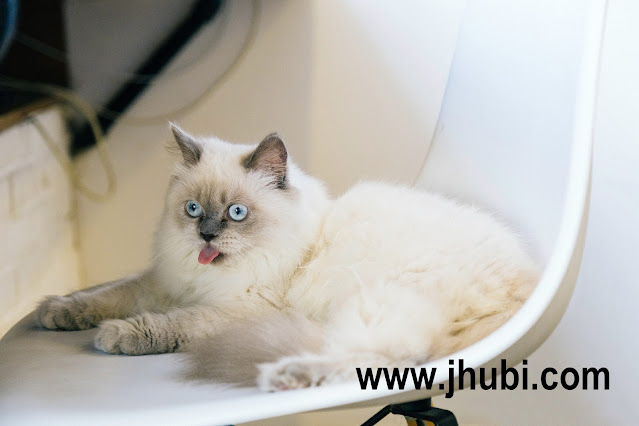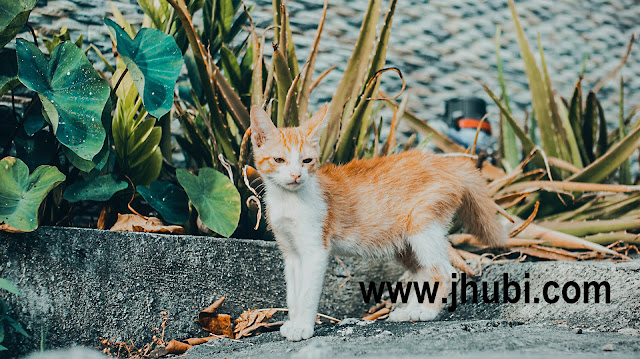"It may sometimes feel like our cats are trying to communicate with us through their merry meows and playful antics around the house. However, constant meowing can be quite bothersome. While some cats meow more frequently than others, they have various reasons for doing so. One thing is certain, though – they are attempting to convey something to us. Cats only meow at humans, using it as a means to communicate with their owners. To stop excessive meowing, it's crucial to understand the underlying cause. In this blog, we delve into the seven most common reasons behind cats' meowing and explore effective solutions.
1. Meowing due to a medical cause or illness
One significant reason for excessive meowing is an underlying medical problem. If your cat suddenly meows more than usual, it might be indicating pain, discomfort, or illness. In such cases, a visit to the vet is essential to rule out any medical issues.
2. Meowing through learned behavior
When medical causes have been ruled out, excessive meowing may be a result of learned behavior. Cats might meow to get your attention, and if you respond to their meows with actions like opening doors or offering treats, they learn that meowing gets them what they want. In such cases, ignoring the cat's meowing is the best approach.
3. Meowing due to loneliness and boredom
Cats that spend significant time alone may feel lonely, leading to increased meowing when you return home. Providing them with more attention, playtime, and interactive toys can help alleviate their boredom.
4. Meowing due to hunger
If your cat incessantly meows around the kitchen, it's likely seeking food, even outside regular mealtime. Instead of giving in to their demands, wait for the cat to be quiet before feeding them. Consistency is key in reinforcing quiet behavior.
5. Meowing due to stress
Major changes in the home environment, such as moving or introducing a new family member, can lead to stress-induced meowing. Providing reassurance and gradually introducing new elements can help reduce stress and excessive meowing.
6. Meowing due to old age
As cats age, they may experience mental confusion and become disoriented, resulting in increased nighttime meowing. Leaving a night light on in their preferred sleeping area can help them feel more secure.
7. Meowing in heat
Unspayed female cats often meow excessively when in heat, displaying more affectionate behavior as well. Since this behavior is hormonal and instinctual, ignoring the cat won't stop the meowing. Having the cat spayed can help prevent this behavior.
Listening to your cat and identifying the root cause of excessive meowing is crucial. If there are no medical issues, applying the appropriate solutions based on the cause can help reduce and manage their meowing behavior. Being consistent in your approach is essential to achieve lasting results."
FAQS
1. What are the common reasons why cats meow at humans, and how is it different from their communication with other cats?
2. How can pet owners determine the cause of their cat's meowing and differentiate between attention-seeking meows and signs of pain or illness?
3. What are the seven most frequent causes of constant meowing in cats, and what strategies can be employed to address each one effectively?
4. How can medical issues contribute to excessive meowing in cats, and why is it crucial to seek veterinary attention when a sudden increase in meowing occurs?
5. What role does learned behavior play in a cat's meowing, and how can pet owners modify their responses to encourage desired behavior?
6. How does loneliness and boredom impact a cat's meowing, and what can be done to provide companionship and mental stimulation to reduce excessive vocalization?
7. What are the signs of a cat meowing due to hunger, and what feeding practices can help regulate their mealtimes and minimize begging behavior?
8. How can stress affect a cat's meowing, and what techniques can be used to create a calming environment and reduce stress-related vocalizations?
9. How does aging affect a cat's meowing patterns, and what simple solutions can be implemented to ensure their comfort, especially at night?
10. What are the reasons behind a cat's meowing during their heat cycle, and how can spaying be an effective solution for reducing excessive vocalizations?
Cat Websites for information
| Website Name | Click Here |
|---|---|
| Catster.com | Click Here |
| TheCatSite.com | Click Here |
| CatHealth.com | Click Here |
| CatTime.com | Click Here |





0 Comments